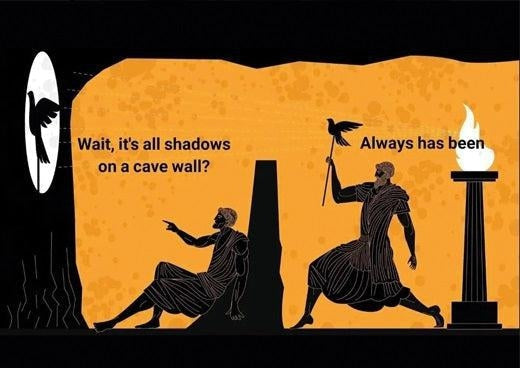Philosophical Dictionary
-

Sisyphus: The Absurd Hero or Asymptomatic Case?
By Markus Uehleke
We ask the tough questions here: what if Sisyphus is just asymptomatic and his happiness is not at all transferable to us "normal" people? Is Camus' assertion more than the "it is what it is" for educated people, even if it is repeated like a mantra in some places?
-

Kant's Thing-in-Itself: The Reality Behind the Curtain
By Markus Uehleke
Kant proposed that our perception of the world is shaped by our senses and mental faculties, filtering reality into a comprehensible form. The "Thing-in-Itself," however, represents the elusive reality that lies beyond our perceptual limitations. By grasping this concept, you can challenge the boundaries of your own understanding and explore what lies beneath the surface of appearances. -

Beyond Good and Evil: Unleashing the Power of Nietzsche's Overman
By Markus Uehleke
Nietzsche viewed the overman as a higher state of being, where individuals embrace their instincts, desires, and passions to unleash their creativity and power. We try to highlight what Nietzsche specifically meant by this. -

Plato's Allegory of the Cave: Unveiling the Truth Behind the Shadows
By Markus Uehleke
Plato's Allegory of the Cave explores the notion of being trapped in a world of shadows and illusions. It invites us to question our perception of reality and contemplate the existence of ideal forms that transcend the physical realm. -

Common Misconceptions of Stoicism and Absurdism
By Markus Uehleke
Popular culture often simplifies or distorts philosophical concepts to fit entertainment (e.g. memes) or narrative purposes, potentially leading to misconceptions. We explain the most common misunderstandings. -

Wittgenstein's concept of linguistic confusion
By Markus Uehleke
What did Wittgenstein actually mean by "linguistic confusion" and how far-reaching is this concept?

















